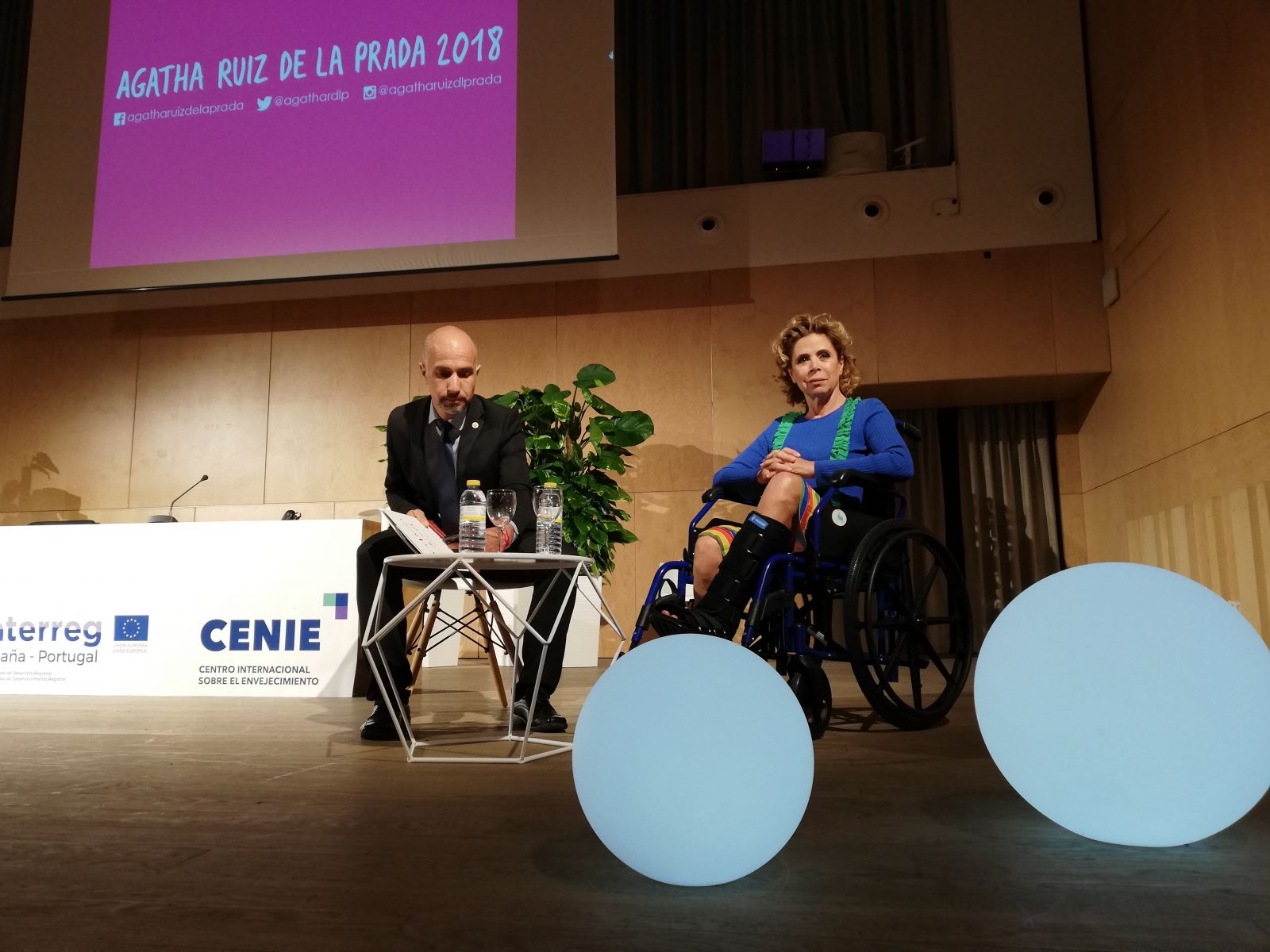Actividades
The CENIE Researchers' Encounter opens the doors to new solutions to provide quality of life for the elderly

The Researchers' Encounter "Research and Ageing: Answers to give quality of life" promoted by the International Centre on Ageing (CENIE) brought together this Tuesday researchers and scientists seeking answers and solutions, through different research projects, to give quality of life to the elderly.
The different presentations, framed within the Multidisciplinary Coordinated Programmes developed by CENIE, aim to provide answers and to develop and promote a research network of excellence between Spain and Portugal and correspond to the 2018 call where a total of 600,000 euros were allocated to finance 17 projects that have been presented in the Auditorium of the Hospedería Fonseca, in Salamanca.
Óscar González Benito, managing director of the General Foundation of the University of Salamanca, spoke at a press conference prior to the meeting that the aim of the event was to highlight "the work being carried out, both in Spain and Portugal, by research centres, universities, companies and other entities, in the field of health or technological innovation to improve the quality of life of the elderly".
Also attending the media was Miguel Ángel Fernández, head of the Neuropsychology Department of the Neurological Diseases Research Centre Foundation (CIEN Foundation) and an expert in the early detection of dementia.
He is the principal investigator of the PILEP+90 Coordinated Programme whose aim is to determine the factors that "allow people to reach the age of 90 and even 100 in optimal conditions".

Concepción Patxot Cardoner, PhD in economics and professor at the University of Barcelona, and advisor to the European Commission on pension, health and dependency policies, presented the TRANSHIST Coordinated Programme, which will examine in depth the role of the economy, the state and families in the sustainability of the welfare state and the dangers it currently faces: "We have seen this reality even in countries where childhood and education are very well protected, such as Sweden, where 90% of the needs of the elderly are covered and only 50% of those of children; and if we combine this with the incorporation of women into the world of work, we could easily explain the low birth rates", the researcher defended.
The guest speakers for the first session, entitled "Quality of life and ageing", were Ángel García Crespo, from the Carlos III University of Madrid, who presented SECURHOME: "Detection of behavioural changes in elderly people using non-invasive iot systems with AI". Javier Arcas from the Tecnalia Research & Innovation Foundation and his "Balance Benchmark: new technological tools for the assessment and training of postural control, and their validation" and Rocío I. Rodríguez Macías from the University of Salamanca, who spoke on "Non-invasive biomarkers of liver damage progression and usefulness as targets for treatment in elderly patients", corresponding to the OLD-HEPAMARKER programme.
In addition to Concepción Paxtot and Miguel Ángel Fernández, Núria Forcada from the Universitat Politécnica de Catalunya participated in session II: researching ageing. The researcher was in charge of presenting the ConTerMa Coordinated Programme: "Analysis of thermal comfort in old people's homes in the Spain-Portugal cross-border cooperation area".
Agatha Ruíz de la Prada adds a touch of colour to the Researchers' Meeting

Agatha Ruíz de la Prada was also present at the meeting to talk about "Creativity, innovation and research". The designer contributed her grain of sand on the subject of ageing, pointing out that "it is very important to accept one's age and enjoy it, it is all a question of attitude".
She also spoke about the role of fashion in the ageing process. "Fashion helps a lot to live a happier life, fashion has been democratised and now it has to become more sustainable," she said. "It is very nice to dress a newborn baby, but how nice it is to dress the elderly, who are at an important moment in their lives and who care about being well".
Inauguration of the new posters exhibition
In parallel to the Meeting, those attending the event were able to enjoy an exhibition of posters selected from research projects aimed at improving the quality of life of the elderly. These are also available in a virtual version on our website.
Of the posters received, 3 were selected to be presented orally in Salamanca. Mª Carmen Pita González from Afa Zamora gave us the presentation "Improvements in the early diagnosis of Alzheimer's disease through the correlation between the complete genome and brain activity". Federico Alonso Trujillo from the Junta de Andalucía presented "I plan for the promotion of personal autonomy and prevention of dependence in Andalusia" and Ana Mª Fernández-Araque from the University of Valladolid presented "Analysis between the functional state of health and the perceived quality of life in the elderly and the assignment of clinical risk, according to degree of complexity".
The meeting is available in full on our Youtube channel.
Remember that the CENIE is promoted by the General Foundation of the University of Salamanca, together with the General Foundation of the Spanish National Research Council, the General Directorate of Health of Portugal and the University of the Algarve, within the framework of the Interreg V-A Cooperation Programme, Spain-Portugal, (POCTEP), 2014-2020, of the European Regional Development Fund (ERDF).
